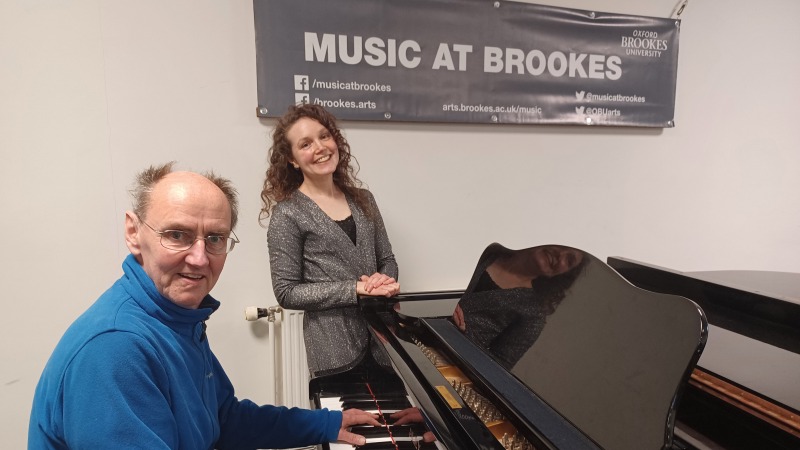Oxford Brookes University celebrates the Eurovision Song Contest

As the UK prepares to host the Eurovision Song Contest in Liverpool on behalf of Ukraine next month, with the final taking place on 13 May, Oxford Brookes University is hosting a special discussion to celebrate the occasion.
Here two of the event’s speakers, retired Oxford Brookes University music lecturer Dr Dai Griffiths, and PhD student Kirsten Etheridge, talk about how pop music has evolved since the contest started in 1956.
How have Eurovision song entries evolved over the years?
Dai: By looking at all the winners over a 50 plus year period, it would appear that modulation has changed, the bit where towards the end of the record the key changes, and the music goes upwards. For some time it looked like it was a rule - if you wanted to win the competition, you had to have one of these key changes - but not across the whole history of Eurovision. The song contest could be called 'the rise and fall' of the modulation.
There's a certain sort of song in the first ten years of Eurovision. By the time you get the hit Puppet on a String from Sandie Shaw in 1967, there's a change away from a particular sort of expressive singer and an emphasis on orchestral arrangements towards pop singers and pop groups. So there's a shift sometime around 1965 to 1967.
The other shift is around 1993 towards a visual and even dramatic presentation. The key change becomes less of an issue and the focus is on how it looks and sounds on stage and the way it is presented.
Kirsten: In recent years I think there's generally been a move towards a more general-sounding sort of "global pop", though there are still countries that have enough confidence in their musical heritage to include traditional elements in their entries. We still get the quirky entries, of course, and some that give off clear vibes that a host broadcaster doesn't want to host next year. Also of late we've had more acts put forward who have won or done well in their countries' versions of The Voice or X Factor rather than a specific host selection competition (like Sweden's Melodifestivalen, which is still going strong), so more acts are used to singing live in that kind of environment. Also, as Dai points out, staging and visuals have become more important - so it's not just all about the music.
What’s your favourite Eurovision song?
Dai: Eres Tu, recorded by Mocedades, the runner-up for Spain in 1973. I didn't know this at the time, but it became a top ten hit in the United States in 1974. It has a certain sort of West Coast quality to it. You can play Truck Stop Girl by Little Feat, Doctor My Eyes by Jackson Browne, Everything I Own by Bread and Eres Tu and they kind of make sense in relation to each other.
Kirsten: Playing with Fire by Paula Seling and Ovi, which criminally only came third for Romania in 2010. It's got everything - a cheeky male/female verbal back-and-forth, thrilling operatic high notes, a see-through piano with two keyboards, and a stomping, catchy chorus. Total banger.
What are you looking forward to about the Eurovision Song Contest?
Dai: I’m not looking forward to it at all! I’ve avoided it like the plague for decades. However, I did think the British entry last year was unusually fine, as was the Italian winner in 2021. Things might be improving. Plus, doesn’t it go on till about half past eleven? I should be in bed long before then.
Kirsten: I'm looking forward to the UK hosting and seeing what we do with it, but I'm especially looking forward to the ways in which the UK honours Ukraine. The host city, Liverpool, is putting on lots of events around Eurovision that celebrate Ukraine and its music, and past Ukraine Eurovision entries (and winners!) Kalush Orchestra, GO_A, Jamala, Tina Karol and Verka Serduchka will open the Grand Final.
More information about the event at Oxford Brookes on Thursday 27 April.
